.jpg)
The Central Electoral Commission (CEC) will have to release information to the Center for Investigative Journalism about the workplace and the year of birth of donors of political parties and electoral candidates, as well as to provide access to the subscription lists of electoral candidates in the presidential campaign 2016 in line with the decision of the Chisinau Court from February 2017 that was given final. In late September, the same court dismissed as unjustified the CEC's request to explain the decision dated February 2017 of the Chisinau Court.
Cornelia Cozonac, president of the Center for Investigative Journalism points to the importance of the information about the donors of political parties for an informed vote.
"It is very important to know the donors of the political parties and how the latter are funded. The fact that the CEC protects certain parties from the citizens with the right to vote is obvious. Previous journalistic investigations revealed, based on information from the party's financial reports, that in some cases the donations were dubious, they came from people who did not have any income, from low-income officials, retirees and the unemployed who donated thousands of lei. In such cases there are schemes where dirty money is legalized. This must be known by voters. We have also revealed the link between public procurement and the funding of political parties. It was possible to carry out all these investigations because we had the information about the donor's job and the year of birth. Now these data are abusively protected and this does not allow the citizen with the right to vote to track information about the donors of certain parties. It is an abuse by the CEC", says Cornelia Cozonac.
In 2016, the Central Electoral Commission decided that data about the job, date of birth, address, and other information about party donors would no longer be accessible to the general public. The reason put forward by CEC was personal data protection.
On October 7, the Center for Investigative Journalism submitted to the Central Election Commission a request asking access to the subscription lists filed by initiative groups for registration of candidates in the presidential elections in Moldova. "Interest in them is determined by debates in society regarding the correctness of developing the election campaign. We believe that any refusal cannot be motivated by personal data. We take responsibility not to reveal personal data contained in the documents requested", writes the first application filed 2 weeks ago.
In addition to this, journalists of the Center have sent another request by which they confirmed again that they assume responsibility not to disclose personal data and not to photograph documents. To this end, the letter wrote that journalists Anastasia Nani and Mariana Rata were supposed to go to CEC. "While processing this category of data, the Commission must take necessary organizational and technical measures for personal data protection against destruction, modification, blocking, copying, distribution and other illegal actions. These measures aim to ensure an adequate security level in terms of risks posed by processing and nature of personal data. In this context, the Commission informs you that it requested the National Centre for Personal Data Protection to develop its views over the legal possibility to provide the Center for Investigative Journalism with subscription lists by requesting guarantees on personal data protection of candidates from lists", replied Alina Russu, chairperson of the CEC.
Another request recently sent to CEC concerns the access to financial reports of all candidates for the seat of president of the country, by revealing the workplaces of donors. Representatives of the Press Service of the Commission replied that these data could not be disclosed because the rules of personal data protection tightened in order to prevent intimidation of donors in the electoral campaign. So far, the full name of donors, year of birth, workplace, and the source of funding were public both in the parliamentary elections in November 2014, and in the 2015 local elections.
The Center for Investigative Journalism (CIJM) won the lawsuit in the main court against the Central Electoral Commission (CEC). Then the state institution was obliged to give access to the subscription lists submitted by the initiative groups for candidates’ registration for the seat of President of the Republic of Moldova, as well as to the financial reports of the candidates enrolled in the electoral race, indicating the data on the work place of the donors. In previous electoral campaigns, the information about donor’s workplace was public, which allowed the Center for Investigative Journalism to carry out more investigations revealing links between business people and political parties.
"The court also points that once the candidates for the seat of President of the Republic of Moldova have agreed to run for a public office and they were included in the electoral lists, they have also given their consent to make public the data about them, or citizens will know whom they vote for. It is presumed that they also agreed to provide the information requested by the complainant, " reads the justified decision.
The court refers to a reply from the National Center for Personal Data Protection addressed to the CEC that journalists may have access to the requested information. However, Commission representatives still hesitate to provide free access to documents. CEC employees suggested that the reporters sign a confidentiality statement that violation of the assumed obligations entails civil, criminal or criminal liability. Just after signing this statement, journalists will be able to access documents, without photographing them, but to study them at the CEC headquarters, with only pens and note paper at hand.
"If there is the society's interest in this matter, I believe it is a new stage and we need to discuss, including through the experience of other states. Let's come up with an approach to the need to change legislation, so that these data are considered as public data and are not protected by the Law on Personal Data Protection ", suggested the chairperson of CEC Alina Russu in a Club of Investigative Journalists.
In an investigation carried out by the Center for Investigative Journalism on political party funding in 2016, Elena Prohnitchi, expert of the Association for Participatory Democracy, "ADEPT", said that information hiding on donors' activity limits the level of financial transparency of parties and reduces the possibility of monitoring its impartiality by investigative journalists and civil society. "Ongoing restriction of access to information, while maintaining the generous donation limits and the reduced capacity of the CEC to check the correctness of political parties' funding, will only further favor the use of less transparent mechanisms for party funding. This poses a serious risk for the fairness and integrity of future electoral processes", said the expert.
Textele de pe pagina web a Centrului de Investigații Jurnalistice www.anticoruptie.md sunt realizate de jurnaliști, cu respectarea normelor deontologice și sunt protejate de dreptul de autor. Preluarea textelor știrilor și a investigațiilor jurnalistice se realizează în limita maximă de 500 de semne. În mod obligatoriu, în cazul paginilor web (portaluri, agenții, instituţii media sau bloguri) trebuie indicat şi linkul direct la articolul preluat de pe www.anticoruptie.md în primul alineat, iar în cazul posturilor de radio și TV – se citează obligatoriu sursa.
Preluarea integrală a textelor se poate realiza doar în condiţiile unui acord prealabil semnat cu Centrul de Investigații Jurnalistice.
Donors:
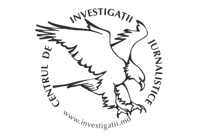
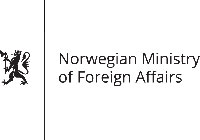

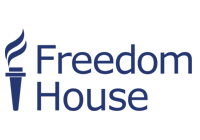
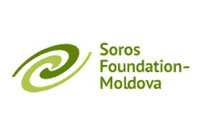
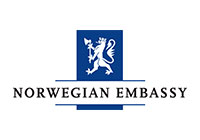
Partners:









